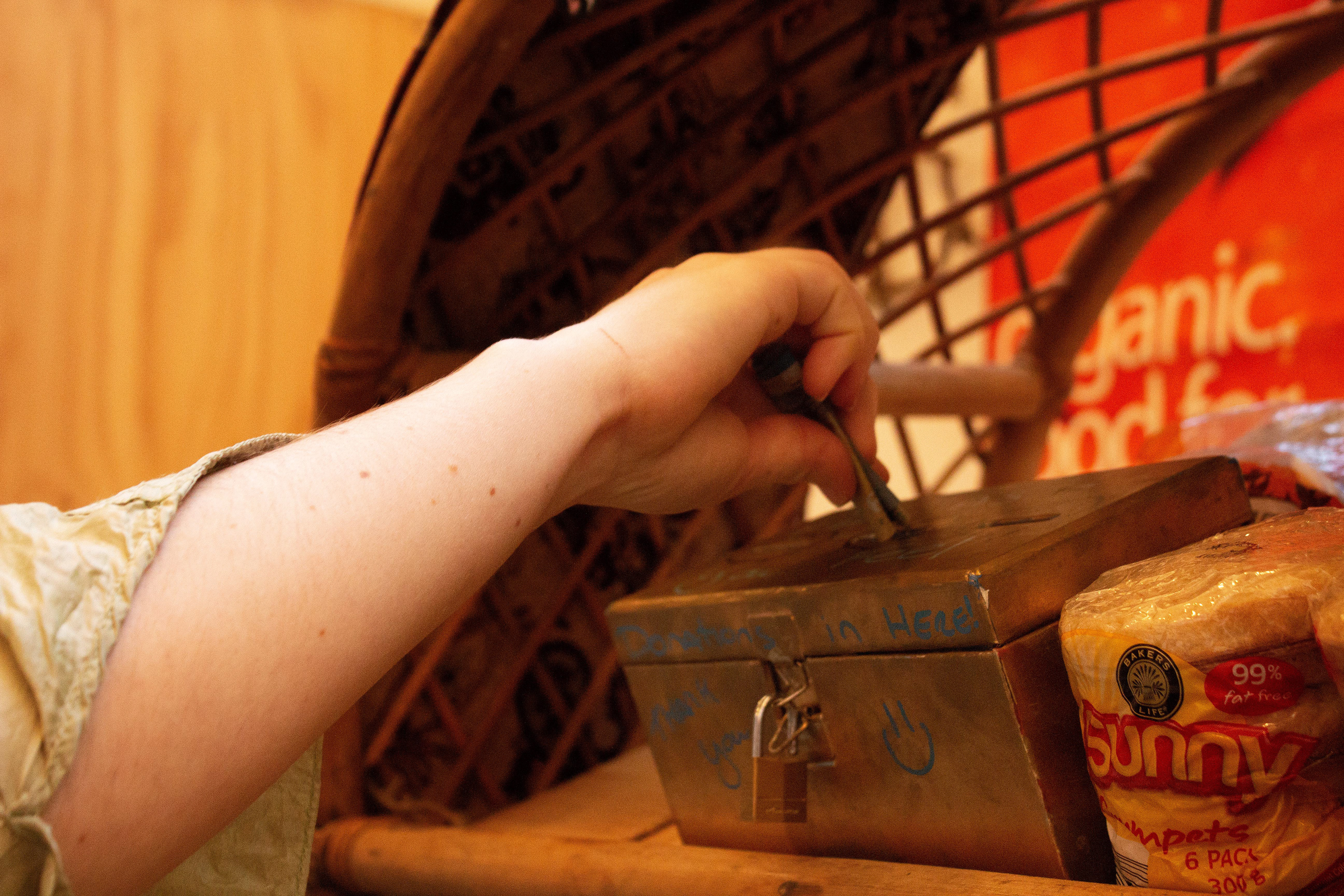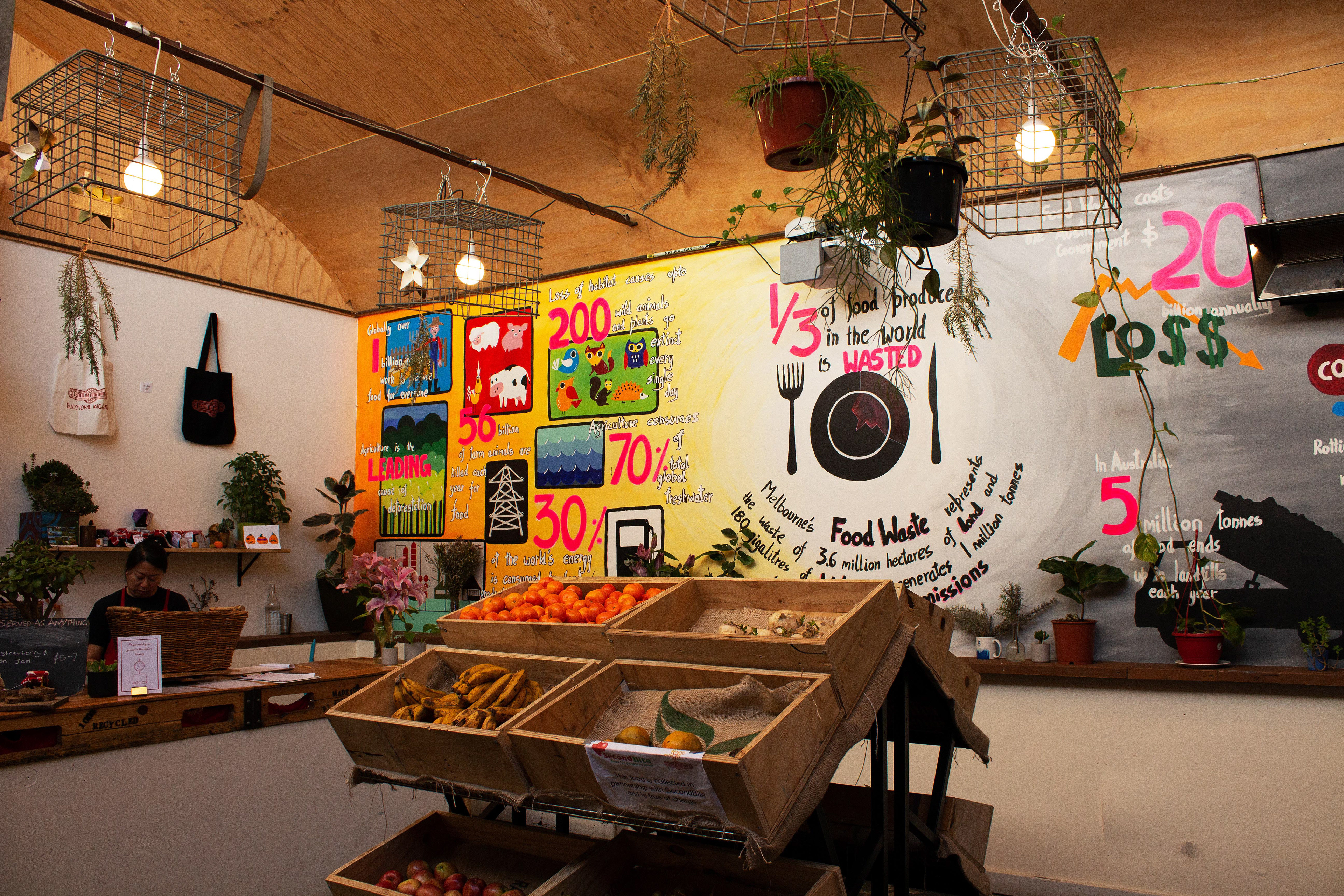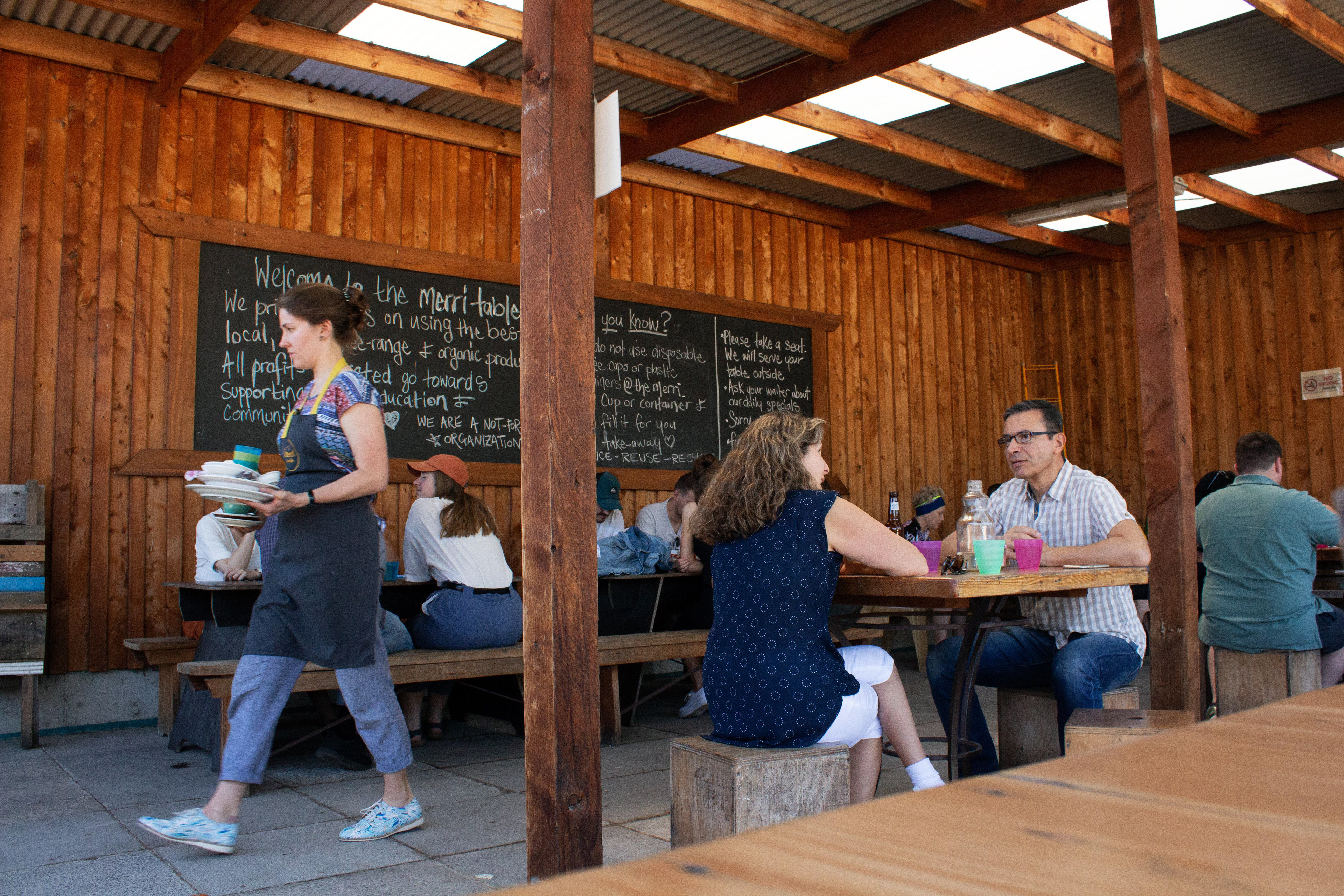THE AUSTRALIAN COMPANIES FIGHTING FOOD WASTE
Photo Essay October 2018
One third of food produced in the world is wasted. In Australia, five million tonnes of food ends up in landfill each year. A handful of entrepreneurial Australian companies have taken it upon themselves to tackle this problem.
In Melbourne’s inner suburbs, at the back of the infamous social enter- prise Lentil As Anything, is the Inconvenience Store. A ‘pay as you feel’ grocery store set up earlier this year, the Inconvenience Store stocks only rescued food, which would otherwise go to waste. All produce is sourced locally from a range of places: farms, supermarket chains Coles and Aldi, bakeries, markets, and from locals who bring in excess food they’ve bought or grown. While all of this food is perfectly edible, it is routinely thrown away across the country. Food from farms that don’t meet super- market standards, discontinued stock that can’t be sold by supermarkets anymore, food that has been kept too long to look fresh, and excess food bought by consumers. All of this food is given away for free and taken by the Inconvenience Store with the aim of providing cheap and accessible fresh food to those who otherwise could not afford it, and reducing food waste in the process. ‘Its an idea that just makes sense’ says the Inconvenience Store’s founder Astrid Ryan, who also stated that it was her hope that others would take up this model of food rescue around the country. Any food that doesn’t sell in the store is used in the Lentil As Anything restaurant, or instead turned into jams and preserves for sale.

a customer picking out mandarins at the Inconvenience Store

the Inconvenience Store’s ‘pay as you feel’ box

an overview of the Inconvenience Store
Another business with a unique system of combatting food waste is the CERES Community Environment Park, a sustainability centre and urban farm which both teaches sustainable food and waste management, and practices it, in their on-site café the Merri Table. Much of the food pro- duced across their 4.5+ hectares of land is used in the restaurant or sold at their grocery (also on site), and all food waste is composted or fed to the chickens. Melbourne produces 1 million tonnes of greenhouse gases yearly from food waste alone. By these simple practices, of growing and sourcing locally, and composting food waste, the Merri Table is able to take almost no part in this.

outdoors at the Merri Table

a visitor interacting with one of the CERES chickens

a customer walks by the CERES pea garden with freshly picked greens
food scraps left for the CERES chickens to eat
One Melbourne based café is also following these practices, but on a much smaller scale, and in a far more urban environment: Brunswick’s East Elevation. In a small garden in the alley behind the café, a portion of East Elevation’s produce is grown, as well as 100% of all honey, mushrooms, and quail eggs used in the restaurant. The café also composts all of their food waste here. East Elevation is a prime example of the way business- es can combat food waste regardless of size and space.

a barista makes coffee inside East Elevation

East Elevation’s laneway produce garden, complete with quail hutch and bee hives
Taking these principles into the hands of individuals is FoodWaste: a mobile app designed to connect people with food scraps, to those in their neighbourhood looking to accept them for composting.
Composting is essential to reducing the emission impacts of food waste. Organic material in landfill decomposes improperly, breaking down slowly, without oxygen, and consequently producing methane – a greenhouse gas 25 times more potent than carbon dioxide. Currently, such food waste composes 8% of global greenhouse emissions. Yet this can be very easily fixed. By buying locally, only purchasing what is needed, and preserving or composting leftovers, food can avoid landfill entirely. As the Inconvenience Store, The Merri Table, East Elevation and FoodWaste demonstrate, food waste can be combatted in many different ways, and on any scale, through just a few simple steps.
a composter using the FoodWaste app